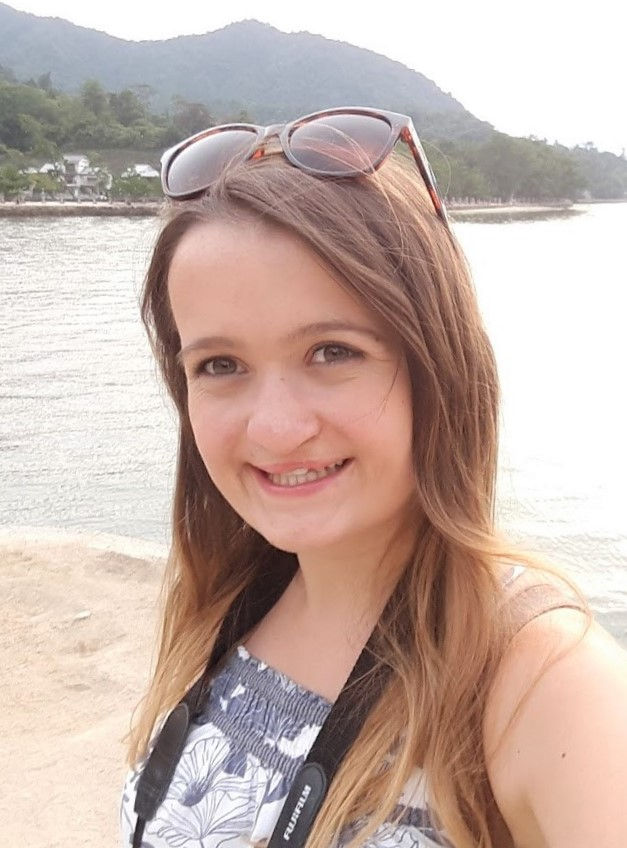What is 'Normal'?
- Jun 9, 2022
- 4 min read
Updated: Jan 6

Growing up with my cleft lip and palate, I always said I just wanted to be 'normal'. My cleft didn't make me feel 'unique' or 'special', it made me feel isolated, alone, weird and 'ab'normal.
Defining 'normal'
The issue is, no one can really define 'normal'. We're all a little different, a little bit odd and we can all be a bit weird. So it's normal to be different. Plus it's normal to want to be 'normal' - to blend in, to be like others in the hope we'll be liked and accepted.
Being 'normal' with a cleft
When you see you're the only one with a particular difference - like a cleft - we can feel like we're not like everyone else. They don't have to deal with this, their nose, lips, mouth, teeth aren't medically different. They don't have to go to the hospital or have a million orthodontist appointments. I'm the one who does, I'm the one that's different, I'm the one that's 'not normal', I won't be accepted.
As a cleft lip and palate patient, it can be easy to feel more noticeably different to others and feel isolated by this. When we’re born, we haven't developed as ‘expected’ or like ‘normal’ babies, so these differences can make us feel a bit excluded.
Distorted 'normality'
Being ‘normal’ in today’s society seems to change every day, which can make us feel even more excluded. ‘Normal’ and ‘perfect’ are often confused as the same thing and everyone's definition is different.
With Photoshopped glamazons plastered on our screens, the range of 'normal' humans we see is limited. As everyone is made up and filtered to look a certain way, we're told that this is how we 'should' look. We lose the richness of individual appearance and feel pressure to conform to a restricted 'acceptable' image.
When you naturally fall outside the filtered 'requirements' (like if you have a facial difference), the challenge to conform to these images feels even harder. Our differences can feel even more pronounced and 'unaccepted'.
This is why representation matters. If we see more variety in how people look (as well as who they are!), we can start to see that being different is totally normal.
Visibly different
A lot of people's differences aren't visible, so some people can choose whether to show their differences or not. This can sometimes make it feel unfair when your difference is a visible one. We can't always feel empowered and confident in our differences and want to share them. While we know having differences is totally normal, it can be hard to always have to share them when others don't always have to share theirs.
While this can feel really hard, it's also an immense privilege. Just by being, we can show the people around us that we aren't all the same. This can feel like a big pressure that we don't always want, but ultimately this is the hand we've been dealt and we can use it to help others. Sharing your difference can help others accept their own, or help educate them about the fact that our differences don't define us.
My story
I recently found an old worksheet from my lower school days where you had to write about yourself. One of the questions was something like ‘What do I like about myself?’. I had written that I liked my nose because it was ‘special’. Sadly, this uplifting attitude deteriorated as I grew up and faced the self-conscious anxiety of teenagehood. This wasn't helped by society's limited representations of 'normal'. It took a long time (and treatment) for me to feel comfortable and accept my differences.
Seeing my eight-year-old answer reminded me how we should feel. We're born unique, we're born ‘special’ and we shouldn't let the lack of representation in our lives make us feel any different. Realistically we're all different (we're all special), no one is 'normal'. This idea can just be used to make us feel inadequate and wrong when in fact 'normal' doesn't exist.
Dealing with the normality of being different
While yes we're all different, we're all special and no one is 'normal', I get it that there will be days when we feel isolated because of our differences. On these days it can be useful to remember that 1 in 700 people are born with a cleft. If the world's population is around 8 billion, that means there are at least 11 million other people who have a cleft. They might also feel different and a bit isolated sometimes. But there are over 11 million of us born with the same difference! While we may not be able to see others with a cleft every day, we know they're out there. We don't need to feel so alone when so many of us were born the same way and share one of our differences.
The best thing we can all do to deal with our differences is accept and love them. Show others you’re proud of what makes you unique and that being different is one of the most normal things you can be.


